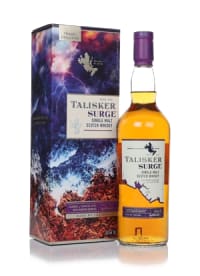Amidst the post-Brexit scenario, Welsh whisky is set to receive the prestigious protected origin status (PGI), following in the footsteps of its Scottish and Irish counterparts. This distinguished recognition comes as a result of the newly established UK protected geographical indication (UK GI) scheme, which now replaces the EU's protected designation of origin label in the UK market. Notably, single malt from four esteemed distilleries in south and west Wales, namely Coles, Da Mhile, In the Welsh Wind, and Penderyn, have earned the UK GI status, signifying the authenticity and unique characteristics of their products.
This move became essential due to the exclusion of the UK from the EU's protective scheme after Brexit. Fears arose that without proper legal protection, beloved food items like Cornish pasties would be susceptible to imitations. Consequently, the British government introduced the alternative designation to safeguard the nation's diverse and cherished culinary heritage.
Such protective arrangements have a long-standing presence in agricultural law, driven by the noble intention to safeguard and trademark products associated with specific regions, ensuring consumers can trust and cherish their authenticity. As the UK forges its path post-Brexit, securing protected origin status for Welsh whisky represents a milestone in preserving the nation's rich culinary heritage and promoting the distinct and exceptional flavors of its fine spirits.
With Wales' food and drink industry experiencing a spectacular renaissance, coupled with a flourishing tourism sector, their exports soared to a remarkable £640 million in 2021. The Welsh government, fully committed to nurturing this culinary resurgence, recently unveiled a visionary fund earmarked to invigorate food and drink festivals. This initiative, empowered by small grants, aims to heighten the public's appreciation and access to authentic Welsh food and beverages, forging a deeper connection between consumers and their culinary heritage.
The whisky market, reaching far beyond borders, extends its influence to over 45 countries, emerging as a substantial contributor to this thriving sector. Eagerly anticipated forecasts predict a remarkable revenue of £23 million from total sales in the current financial year, a testament to the compelling allure of this liquid gold.
Welcoming this glorious addition to the Welsh GI family with open arms, Lesley Griffiths MS, the Welsh government minister for rural affairs, commends the continuing triumphs of the Welsh whisky industry. Indeed, this flourishing sector plays a pivotal role in the esteemed food and drink domain, weaving an exquisite tapestry of flavor and heritage, unique to Wales. As the curtains rise on this new chapter of culinary distinction, the world awaits to savor the distinctive essence of Welsh single malt whisky, enveloped in the embrace of protection and prestige.
About Welsh Whisky
Welsh whisky is a distinguished and cherished spirit that holds a special place in the world of whisky production. Known for its smooth and refined taste, Welsh whisky has gained recognition and popularity in recent years. The whisky-making tradition in Wales dates back centuries, but it experienced a period of decline during the 20th century. However, in the late 1990s and early 2000s, a revival of the Welsh whisky industry began, with the establishment of new distilleries and a renewed interest in crafting high-quality, single malt whiskies.
One of the prominent distilleries leading the Welsh whisky renaissance is Penderyn, founded in 1999 and located in the Brecon Beacons National Park. Penderyn has played a pivotal role in reviving the Welsh whisky tradition and has gained international acclaim for its exceptional expressions.
Welsh whisky is often characterized by its distinct flavor profile, which is influenced by the local environment, water sources, and the quality of Welsh barley used in the production process. Some Welsh whiskies showcase light, fruity notes, while others have a richer and more complex taste, depending on factors such as cask maturation and distillation techniques.
The reinvigorated Welsh whisky industry has not only been embraced locally but has also gained recognition on the global stage. As exports continue to rise, Welsh whisky enthusiasts around the world can enjoy the craftsmanship and flavors that make Welsh whisky a distinctive and celebrated spirit in the world of whisky connoisseurs.









